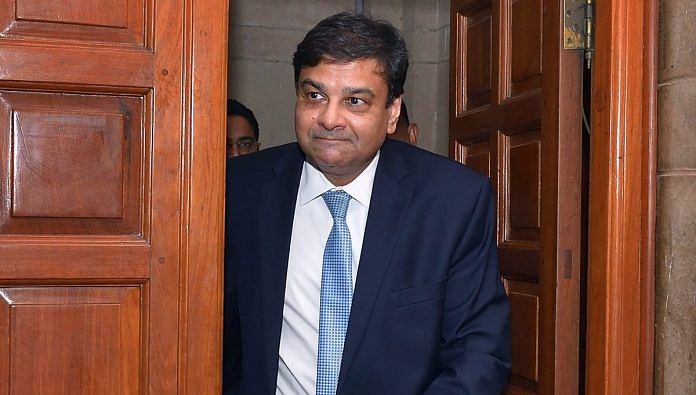Patel defended the central bank, saying it is simply impossible for the regulator “to be in every nook and corner of banking activity to rule out frauds”.
New Delhi: Days after finance minister Arun Jaitley hit out at the RBI for its “failure” to detect the Rs 13,600 crore Punjab National Bank-Nirav Modi fraud, RBI governor Urjit Patel defended the central bank, saying it is simply impossible for the regulator “to be in every nook and corner of banking activity to rule out frauds”.
“In the specific case at hand, the Reserve Bank had identified, based on cyber risk considerations, the exact source of operational hazard – through which we understand now the fraud had been perpetrated,” Patel said.
Speaking on the alleged fraud, Jaitley had said at a global business summit: “We must always remember that regulators have a very important function. They ultimately decide the rules of the game and they have to have a third eye kept perpetually open and turned towards the sector. But unfortunately, in the Indian system, we politicians are accountable, the regulators are not.”
In defence of the regulator
In a speech at the Gujarat Law University Wednesday, Patel pointed out that dual regulation ownership by the finance ministry and the RBI has led to a deep crack in the banking regulatory setting.
Patel indicated that the RBI’s hands are tied when it comes to public sector banks as it is incapable of removing directors and management at PSBs, cannot force mergers, cannot revoke licences, and cannot trigger liquidation, among other things.
He also highlighted that in the case of private sector banks, the real deterrence to act against fraudulent activities arises from their market and regulatory discipline, as the primary concern of the CEO of a private bank is whether s/he will be able to raise capital when the need arises, or even whether s/he will still be running the bank the next day. In contrast, the market discipline mechanism for public sector banks is appreciably weaker than at private banks, he said.
This should prompt the government, which owns the public sector banks, to modify the ownership structure, so that there can be stronger regulatory discipline for these banks. However, since the original idea behind bank nationalisation was complete government control over credit allocation to the economy, the situation in India is exactly the reverse: the RBI’s regulatory powers over PSBs are weaker than those over the private sector banks, he said.
Patel’s prescription
The RBI governor pointed at the fact that government has provided an Insolvency and Bankruptcy Code and the bank recapitalisation package to get the churn going, and said it should consider making further, equally important contributions.
This, he said, could be done making banking regulatory powers neutral to bank ownership, and levelling the playing field between public sector and private sector banks.




Standard bureaucratic ‘Cover My Back’ type lame defense. RBI cannot detect fraud in the nationalized banks because it cannot appoint its directors ! It is like a security guard saying that I cannot raise the alarm until I am made the first supervisor of the CEO of the company I am guarding. Or the dog saying that it will not bark at the intruder because it has no right to control the way the strange intruder dresses himself. Why did the RBI not raise the red flag when the Neerav fraud was going on since 2011? Did it not have institutional mechanisms of oversight ? If not, why did it not create it? Did it try to create one and finance ministry block its attempts to do so ?
I am not a big fan of Arun Jaitly but he is right on this score. His ministry cannot be expected to do RBI’s job. I have worked in RBI for nearly three years and therefore know that it is no different than a static, stagnant, status quo-ist administrative black hole – where you see things going in but not coming out.
Some would say the government considers the RBI as its 22nd PSB, a dependable source of dividend, which few others pay, well advised to tow the line on rate cuts. It is the owner of the godown who should ensure that someone does not empty it in the middle of the night.